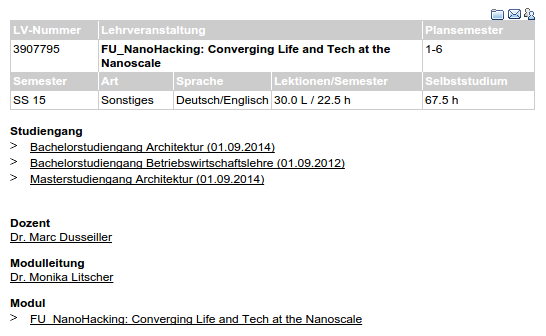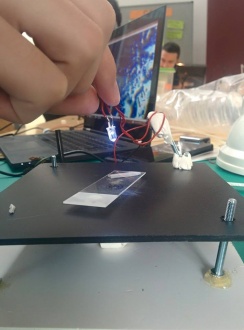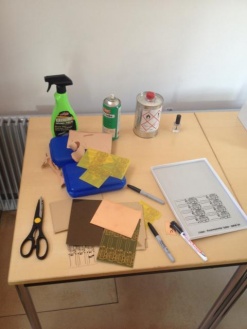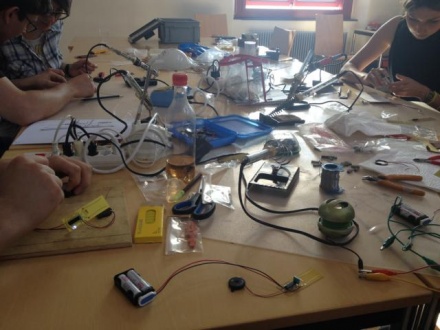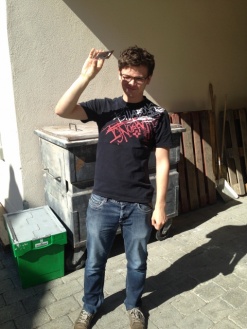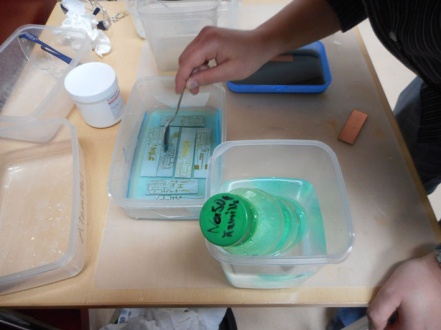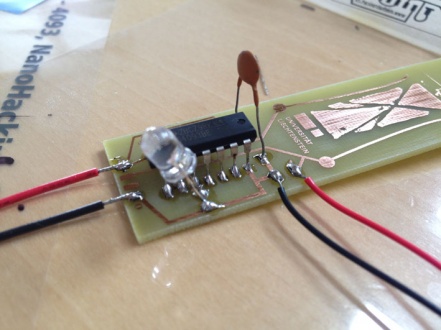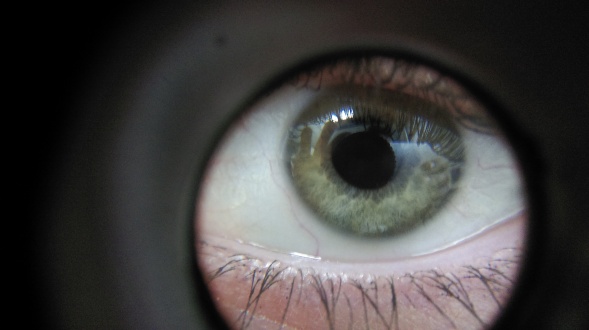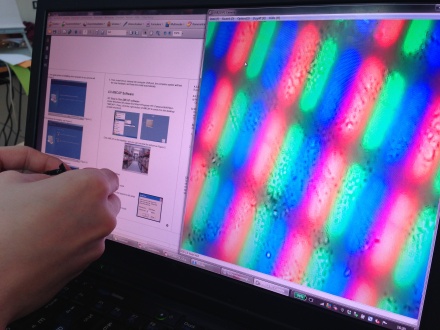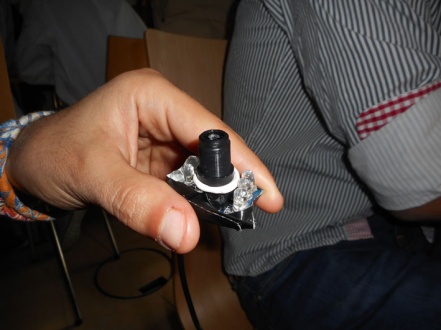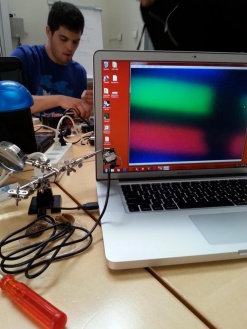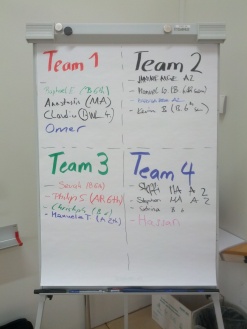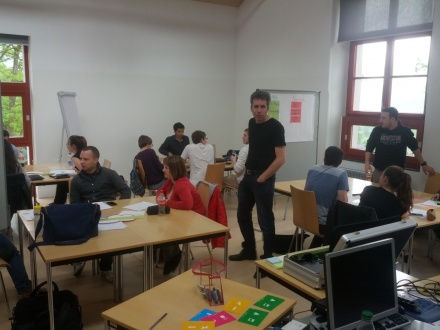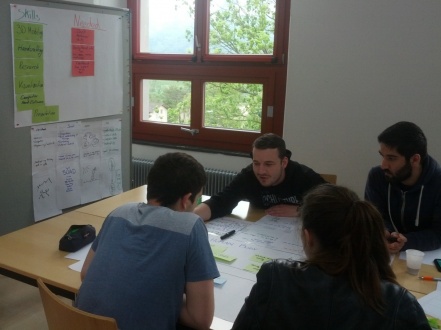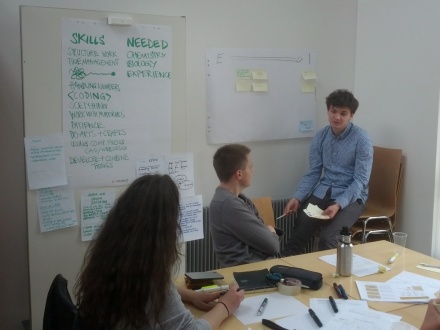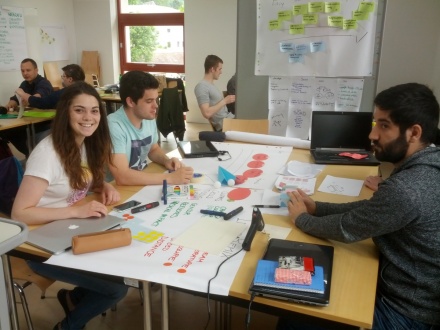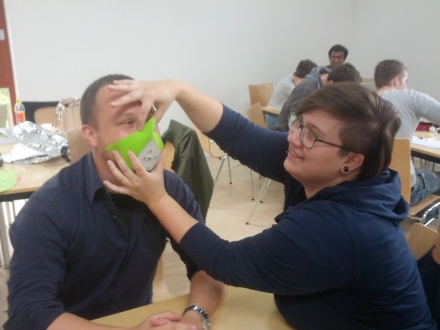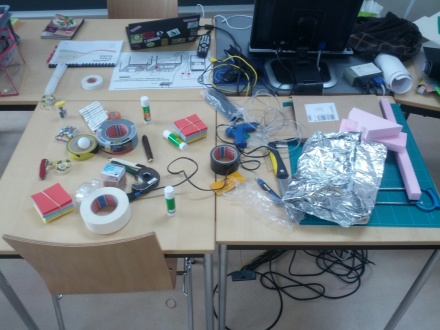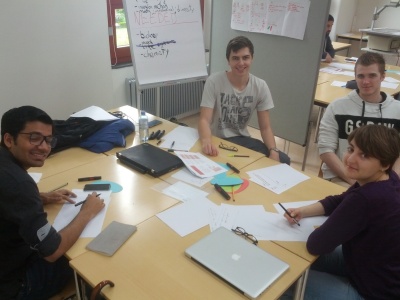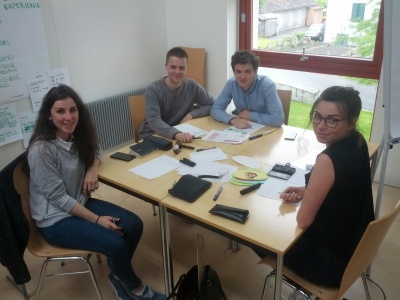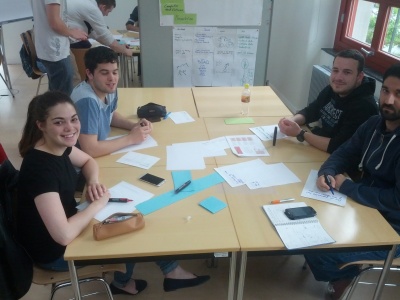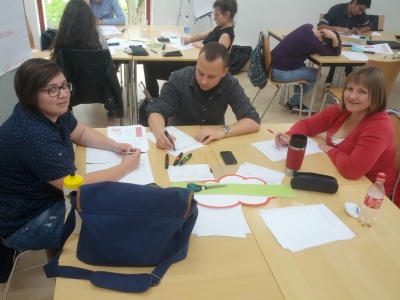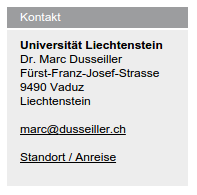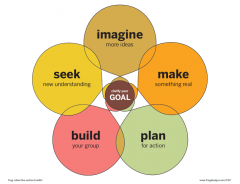NanoHacking-UNILI
"The innovators of 1600 were hackers before the word existed; they proposed open sharing of ideas for the benefit of humanity. Isaac Newton, Robert Hooke, Descartes, and the other scientists of the late 1600s could not have inaugurated the greatest scientific innovation of all time—the invention of modern science itself—without the Hackers of the 1600s. The Renaissance’s secretive structure was hacked, and it inspired the Scientific Revolution."
Contents
News
- 23.April: RAUMÄNDERUNG: Ab 24. April finden sämtliche Veranstaltungen im Seminarraum 3 / S3 statt.
Where
http://www.uni.li/tabid/251/id/43034.67/default.aspx
Sandbox - NanoHacking UNILI
Schedule
Description
Overview
During this course, the students will be introduced into the merging disciplines of of art, science and engineering that meet at the nanoscale. But what is nanotechnology? It promises huge beneficial impact on global health, sustainable energy and novel materials. At the same time utopian visions, science-fiction scenarios and fundamental fears are clashing at discussions in society. Throughout the course, we will lift the fogs of these superficial discussions and through hands-on activities get closer to grasp the world of the small. We will build our own simple DIY (do-it-yourself) optical and electronic instruments to learn more about nanoparticles and nanosensors, how to "see" them, how to "hear" them.
One key aspect of the nanosciences is the fact that the traditional disciplinary borders of physics, biology, engineering, to name a few, are merging. With the current tools and methods of understanding matter on the smallest scales of atoms and molecules, only a true collaborative and transdiscplinary approach can lead to new insight, application and constructive discourse of its societal implications.
more about project work and speculativ design thinking
Content (Englisch)
- Introduction to the science and technologies at the nanometer scale
- Overview of future technology trends involving nanotechnology
- Hacking as a method of creative thinking and opening the black box
- Practical laboratory experience in nanotechnology
- Societal implication of future technologies
- Methods for speculative design thinking
Lerninhalt (Deutsch)
- Einführung in die Wissenschaft und Technologien auf der Nanometerskala
- Überblick von zukunftsweisenden Technologietrends im Bereich der Nanotech
- "Hacking" als Methode kreativ zu Denken und die „Black-Box“ zu Öffnen
- Praktische Laborexperimente im Bereich Nanotechnologie
- Gesellschaftlicher Einfluss von Zukunftstechnologien
- Methoden für spekulatives „Design Thinking“
Final Group Presentations
Each group has 40 minutes time for their presentation, including discussions, Q&A
The following parts of your presentations are requested. The order can be changed. suggested times are mentioned.
- Introduction into your theme (ca 10%)
- Main presentation (40%)
- Describe your processes and methodologies used to achieve the goals of your project and critically reflect on them (ca 30%)
- Summary (5%)
- Q&A session with other students and mentor (25%)
More info about the project:
- The project/presentation format can be chosen freely
- It has to be connected to the main global theme of "Convergence of Life and Tech at the Nanoscale"
- It has to be situated in your general understanding of the field of Nanotechnology
- It can be speculative, fictional, dis- utopian, or also applied and realistic
- It should be situated in the future - define roughly in wich decade or century your project is situated
- It should be fun !!! Keep the humours alive and be critical
About the format:
- Please inform M. Dusseiller in advance (2 days) if your presentation needs extra infrastructure (sound system, lights, projection etc...)
NanoHackLab Projects
Collaborative Projects
Team-Project Work
Group 1 - NanoHacking-UNILI
- Chaudhary, Omer Khalid
- Ender, Raphael
- Lamprecht, Claudio
- Oksiukovska, Anastasiia
Group 2 - NanoHacking-UNILI
- Alge, Janine
- Bösch, Kevin
- Ruech, Barbara
- Weber, Manuel
Group 3 - NanoHacking-UNILI
- Chetschumjan, Sevak
- Obermaier, Christoph
- Schatzmann, Philip
- Türtscher, Manuela
Group 4 - NanoHacking-UNILI
- El Ghayes, Hassan Amr
- Oehri, Stephan
- Schnetzer, Stefanie
- Urban, Sabrina
Presentation-slides
Day 1 - Introduction
https://www.youtube.com/watch?v=UHCT9SOBHs0&feature=youtu.be
Day 2 & 3 - NanoHackLab
Setting up the Lab
Making Small Things
Dimensionality on the Nanoscale
Seeing Small Things
Surfaces and Interfaces
Day 4 - Group Works Start
Day 5 - Speculative Futures
Day 6 - Presentations
Who
Mentor - Dr. Marc Dusseiller (CH)
Dr. Marc R. Dusseiller is a transdisciplinary scholar, lecturer for micro- and nanotechnology, cultural facilitator and artist. He works in an integral way to combine science, art and education. He performs DIY (do-it-yourself) workshops in lo-fi electronics and synthesizers, hardware hacking, phyisical computing, nanotech and microscopy. He was co-organizing Dock18, Room for Mediacultures, diy* festival (Zürich, Switzerland), KIBLIX 2011 (Maribor, Slovenia), workshops for artists, schools and children as the former president (2008-12) of the Swiss Mechatronic Art Society, SGMK. In collaboration with Kapelica Gallery, he has started the BioTehna Lab in Ljubljana (2012 – 2013), an open platform for interdisciplinary and artistic research on life sciences. Currently, he is developing means to perform bio- and nanotechnology research and dissemination (Hackteria | Open Source Biological Art) in a DIY fashion in kitchens, ateliers and in developing countries.
Special Guest - Dipl.Ing. Urs Gaudenz (CH)
Students
- jayjay
- Omer.K
- hghayesh
- manuelW
- coconut91
- StephanOe (changed from Stephan)
- SabrinaU (changed from Sabrina)
- christophobi
- carapace
- keegan11
- BonsaiBob
- ueli
- babsiru
- oksivk
- doc1993
- sogomon
Related
Similar course done in Aalto University for High-School and Art Students NanoHacking: Converging Life and Tech at the Nanoscale - BiofiliA HighSchool, Finland
Furter readings and interesting links
NanoSmano
NanoŠmano - LifeSystems is an intersting art/sci collaborative research project, which happened 3 times in Ljubljana, Slovenia.
The following minimal circuit was developed as a DIY nano-based resistive surface sensor, introducing photolithography and surface properties, see Vive-la-Resistance
wetPONG
A course for bachelor students in biomedical engineering by the mentor, Marc Dusseiller, introducing a game-concept into the practical teaching of micro- and nanotechnology.
UCLA Sci|Art Nanolab
A 2 week summer-school for high-school students held every year at UCLA, combining artists and scientists as mentors.
http://summer.artscicenter.com/
Next Nature - Nanosupermarket
NEAR FUTURE DESIGN
http://nefula.com/near-future-design-vol-1-nanotechnologies/
Critical Design & Speculative Futures
Collective Action Toolkit by frog
Download the Collective Action Toolkit File
And read more about it here: http://www.frogdesign.com/work/frog-collective-action-toolkit.html
Human Centric Design
http://www.ideo.com/images/uploads/hcd_toolkit/IDEO_HCD_ToolKit.pdf
Service Design
http://www.servicedesigntools.org/
Critical Design
https://medium.com/@luizaprado/questioning-the-critical-in-speculative-critical-design-5a355cac2ca4
Co-design: some principles, theory, and practice
http://www.smallfire.co.nz/2011/05/17/co-design-some-principles-theory-and-practice/
Other Examples
http://www.cd-cf.org/symposium/
http://www.extrapolationfactory.com/
https://squareup.com/market/the-extrapolation-factory
Articles
- "THE ART OF FREE AND OPEN SCIENCE", MCD#68 THE OPEN FUTURE see more info here and available for download in English and French
Videos
Speculative Design
Nanotechnology Intros
Experimenting with protocell:
